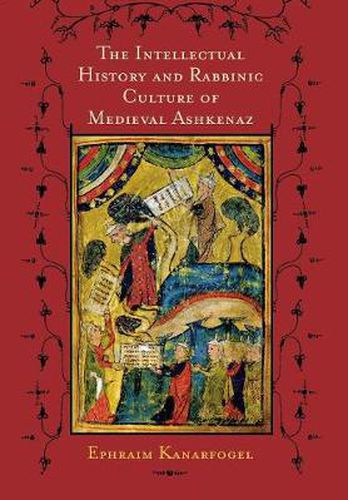Readings Newsletter
Become a Readings Member to make your shopping experience even easier.
Sign in or sign up for free!
You’re not far away from qualifying for FREE standard shipping within Australia
You’ve qualified for FREE standard shipping within Australia
The cart is loading…






This title is printed to order. This book may have been self-published. If so, we cannot guarantee the quality of the content. In the main most books will have gone through the editing process however some may not. We therefore suggest that you be aware of this before ordering this book. If in doubt check either the author or publisher’s details as we are unable to accept any returns unless they are faulty. Please contact us if you have any questions.
In The Intellectual History and Rabbinic Culture of Medieval Ashkenaz, author Ephraim Kanarfogel challenges the dominant perception that medieval Ashkenazic rabbinic scholarship was lacking in intellectualism or broad scholarly interests. While cultural interaction between Jews and Christians in western Europe was less than that of Sephardic Jews, Kanarfogel’s study shows that the intellectual interests of Ashkenazic rabbinic figures were much broader than Talmudic studies alone.
Kanarfogel begins by highlighting several factors that have contributed to relatively narrow perceptions of Ashkenazic rabbinic culture and argues that the Tosafists, and Ashkenazic rabbinic scholarship more generally, advocated a wide definition of the truths that could be discovered through Torah study. He explores differences in talmudic and halakhic studies between the Tosafist centers of northern France and Germany, delves into aspects of biblical interpretation in each region, and identifies important Tosafists and rabbinic figures. Kanarfogel also examines the composition of liturgical poetry (piyyut) by Tosafists, interest in forms of (white) magic and mysticism on the part of a number of northern French Tosafists, and a spectrum of views on the question of anthropomorphism and messianism.
Overall, Kanarfogel demonstrates that the approach taken by Tosafists was broader, more open, and more multi-disciplinary than previously considered. Medieval and Jewish history scholars will appreciate Kanarfogel’s volume, which is the culmination of several decades of research on the subject.
$9.00 standard shipping within Australia
FREE standard shipping within Australia for orders over $100.00
Express & International shipping calculated at checkout
This title is printed to order. This book may have been self-published. If so, we cannot guarantee the quality of the content. In the main most books will have gone through the editing process however some may not. We therefore suggest that you be aware of this before ordering this book. If in doubt check either the author or publisher’s details as we are unable to accept any returns unless they are faulty. Please contact us if you have any questions.
In The Intellectual History and Rabbinic Culture of Medieval Ashkenaz, author Ephraim Kanarfogel challenges the dominant perception that medieval Ashkenazic rabbinic scholarship was lacking in intellectualism or broad scholarly interests. While cultural interaction between Jews and Christians in western Europe was less than that of Sephardic Jews, Kanarfogel’s study shows that the intellectual interests of Ashkenazic rabbinic figures were much broader than Talmudic studies alone.
Kanarfogel begins by highlighting several factors that have contributed to relatively narrow perceptions of Ashkenazic rabbinic culture and argues that the Tosafists, and Ashkenazic rabbinic scholarship more generally, advocated a wide definition of the truths that could be discovered through Torah study. He explores differences in talmudic and halakhic studies between the Tosafist centers of northern France and Germany, delves into aspects of biblical interpretation in each region, and identifies important Tosafists and rabbinic figures. Kanarfogel also examines the composition of liturgical poetry (piyyut) by Tosafists, interest in forms of (white) magic and mysticism on the part of a number of northern French Tosafists, and a spectrum of views on the question of anthropomorphism and messianism.
Overall, Kanarfogel demonstrates that the approach taken by Tosafists was broader, more open, and more multi-disciplinary than previously considered. Medieval and Jewish history scholars will appreciate Kanarfogel’s volume, which is the culmination of several decades of research on the subject.